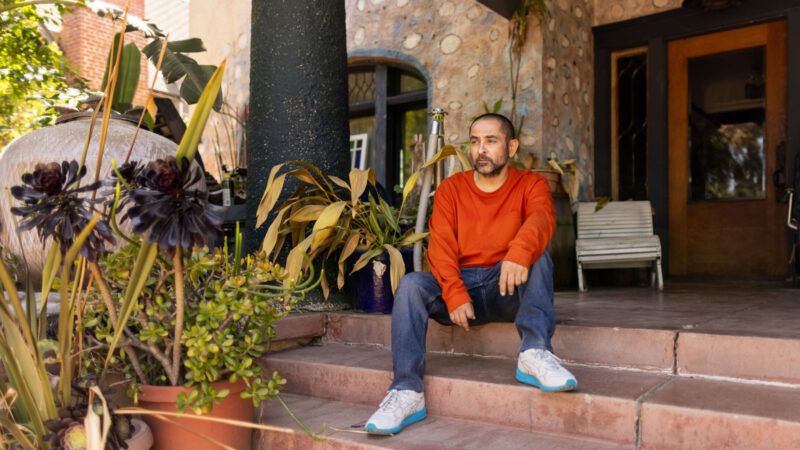Prosecutors Tried To Seize $57K From This Man's Safe Deposit Box Because He Sold Bongs Without a Permit
After getting called out for a "manifestly inadequate" attempt at establishing probable cause for the seizure, the feds now say they will return Joseph Ruiz' money.

Prosecutors say they will return more than $57,000 in cash seized from a safe deposit box belonging to Joseph Ruiz, one of the hundreds of innocent targets of a brazen FBI raid that took more than $85 million of cash and other valuables into federal custody.
In a response filed Tuesday in federal district court, prosecutors said they would drop forfeiture proceedings against Ruiz' property and return his money. That came just days after Judge R. Gary Klausner issued a scathing order telling prosecutors to "articulate an adequate justification for the ongoing seizure" or drop the effort. Klausner has also cast a skeptical eye on other forfeiture efforts connected to the FBI raid of U.S. Private Vaults, the California-based safe deposit box storage facility where Ruiz had kept his money prior to the March 22 raid that resulted in more than 800 safe deposit boxes being seized by law enforcement.
U.S. Private Vaults has been indicted on several criminal charges, including conspiracy to commit money laundering, but there have not been criminal charges filed against any of the individuals who stored cash, jewelry, and other valuables at the Beverly Hills-based business. Lawyers defending those individuals against federal forfeiture actions have described the FBI's strategy as being akin to seizing all the valuables from every apartment in a building simply because the management company was accused of a crime.
As Reason has previously reported, the FBI has only unsealed one of the two warrants used to justify the raid at U.S. Private Vaults. That warrant gave law enforcement the authority to seize property belonging to the company but also "does not authorize a criminal search or seizure of the contents of the safe-deposit boxes." The second warrant, which Reason has asked a federal court to unseal, remains under wraps.
When asked to provide a justification for the seizures of specific safe deposit boxes, federal prosecutors have so far been unable to provide much evidence of suspected wrongdoing.
In an affidavit filed last week in response to Klausner's demand that the FBI show justification for the ongoing seizure of Ruiz' property, prosecutors claimed they seized the money because an email address listed on documents inside Ruiz' box was traced to an online business that specializes in "turning liquor bottles into marijuana smoking devices."
"This business suggests that Ruiz may be involved in the cannabis industry in other ways," prosecutors claimed, despite the fact that he does not have a license from the California Department of Cannabis Control. Elsewhere, prosecutors argued that Ruiz failed to provide sufficient documentation to prove that some of the money had come from a legal settlement.
Lawyers from the Institute for Justice (IJ), a libertarian nonprofit law firm that represented Ruiz, called those claims "manifestly insufficient" to justify the taking of $58,000 in cash.
"The government's affidavit, bereft of any actual evidence, amounts to nothing more than innuendo and supposition," wrote attorneys Robert Frommer and Robert Johnson. "The government cannot be allowed to seize property without any suspicion of wrongdoing and then force property owners to prove their own innocence to get that property back."
The fact that prosecutors did not even wait for Klausner to weigh in again before agreeing to return Ruiz' cash likely says something about how they view the strength of their own case. And this is becoming an embarrassing pattern for the federal prosecutors handling the U.S. Private Vaults forfeitures. In an order issued in a separate case last week, Klausner described the attempt to seize more than $900,000 from another safe deposit box as being based on "pure conjecture."
"The last five months have been very difficult and I look forward to resuming the medical treatment my savings were meant to pay for," Ruiz said in a statement through IJ. "No one should have to go through this."


Show Comments (26)